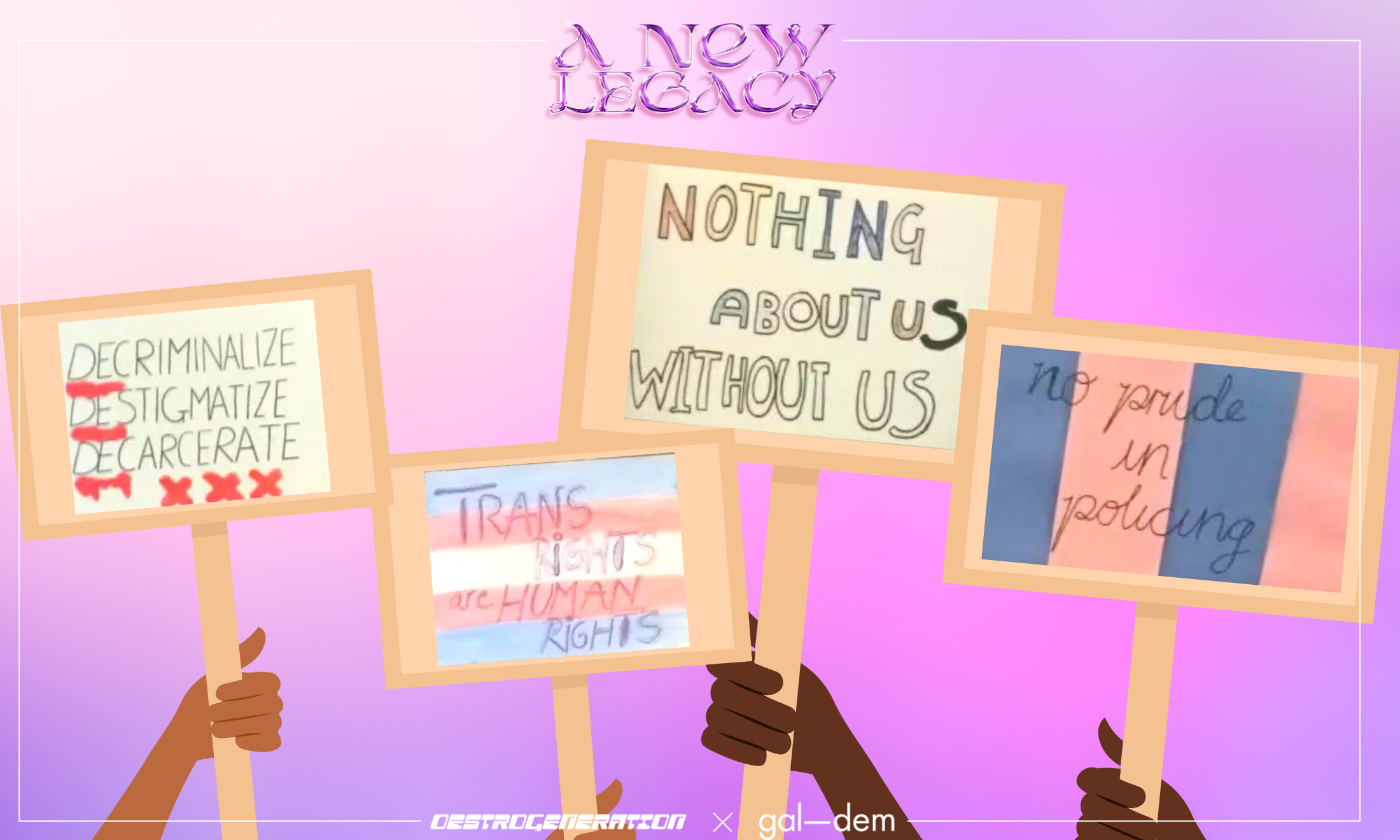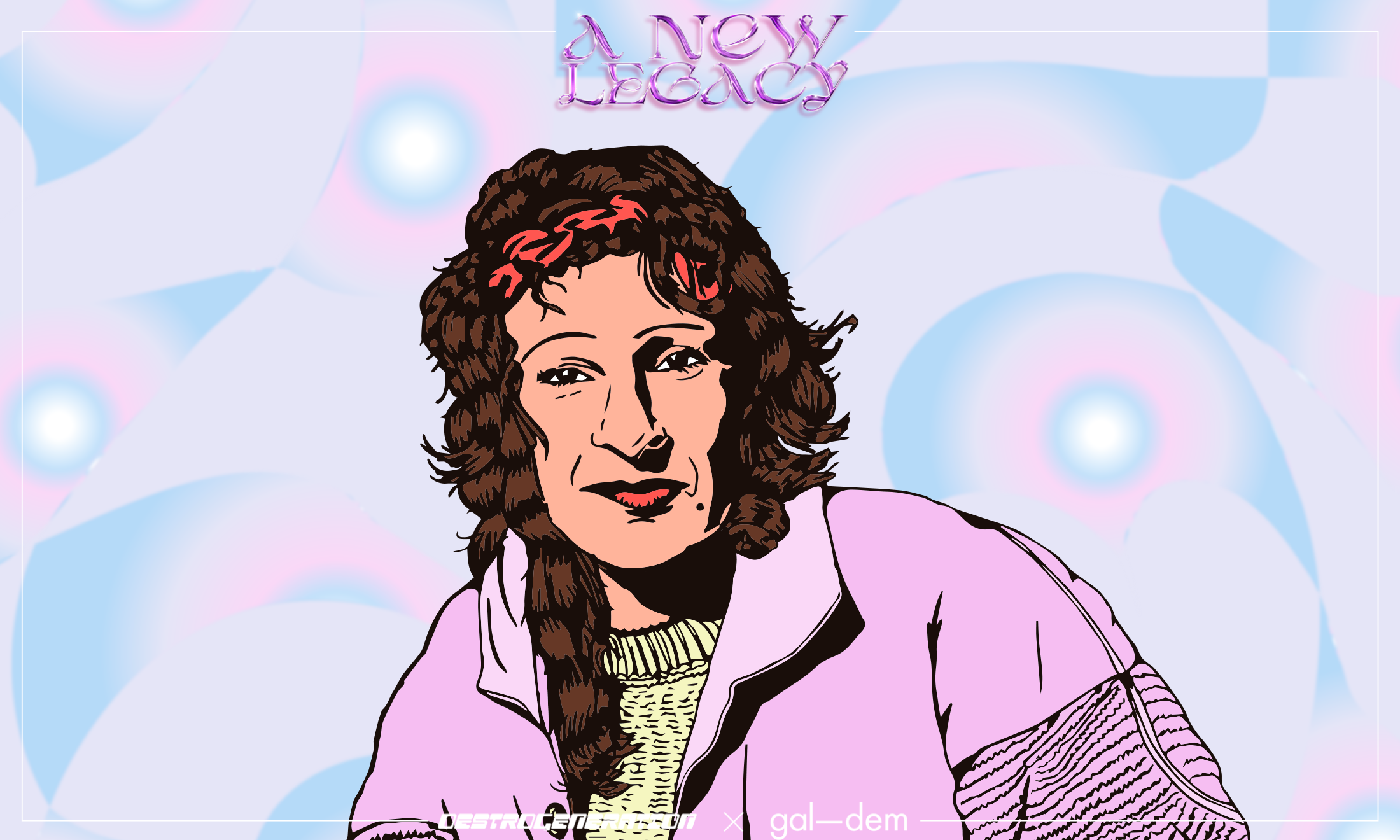A new legacy: Now more than ever, trans women must tell their own stories
oestrogeneration founder and editor June Bellebono on channelling grief into creation and the power of trans storytelling.
June Bellebono
14 Nov 2022

Karis Pierre
This story is part of A new legacy — a collaboration between gal-dem and oestrogeneration platforming transfeminine writers of colour. Read more stories in the series here.
Over the years I, like many other trans writers and thinkers, have come to memorise well-known statistics related to trans livelihood: that one in four trans people have experienced homelessness; that nearly half of young trans people have attempted suicide; that the life expectancy of trans women of colour is 35 years old. Some of these statistics have been debunked, while others feel oversimplified.
Numbers will never be able to accurately reflect the complexities and nuances of our actual lives, and numbers will never be enough when so many of us remain uncounted. Yet, these numbers play a role in our lives and when trans people are reduced to numbers, we are also reduced to what these numbers represent: suffering, scarcity, violence, death.
As trans storytellers, how do we communicate our hardships without triggering desensitisation? How do we honour our trauma without letting it dominate our narrative? How do we embrace rage, while expressing gratitude for our unlimited possibilities?
“As trans storytellers, how do we communicate our hardships without triggering desensitisation? How do we honour our trauma without letting it dominate our narrative?”
A new legacy builds on these questions, explored in three newly commissioned pieces of writing by trans women and transfeminine writers of colour. They explore sex work, clubbing and histories of organising. They acknowledge our struggles, whilst also interrogating where we go from here. They condemn the antagonism, whilst celebrating the sisterhood. They force us to ask: what’s the legacy of everything we’ve been through, and how do we build a new one?
Grief is an inherent part of trans womanhood. We grieve the loss of our sisters – known and unknown – who were killed by haters and lovers, by family and the state. We grieve the loss of our sisters who choose not to tell the world they were our sisters, and our sisters who choose not to tell themselves they were our sisters, because of the repercussions both of these acknowledgments hold. We grieve our omitted histories. We grieve our futures with uncertain rights.
“A new legacy channels our grief in the creation of new narratives”
A new legacy channels our grief in the creation of new narratives. Transfeminine people are currently in an incredibly hypervisible position, both in the streets and in the media, with an unnecessary amount of coverage surrounding us and our legitimacy to rights, yet very little actual transfeminine representation in charge of this coverage. We are currently facing a level of objectification where we are regularly spoken about, but rarely get the chance to speak for ourselves. This series, and the wider work of oestrogeneration and gal-dem, wants to challenge this mainstream media narrative and create a new legacy of transfeminine writers of colour, where we can tell our own stories on our terms.
If you’re a transfeminine person of colour with a story you’d like to tell, we’d love to hear from you! Please pitch to gal-dem here, and to oestrogeneration here.
The contribution of our members is crucial. Their support enables us to be proudly independent, challenge the whitewashed media landscape and most importantly, platform the work of marginalised communities. To continue this mission, we need to grow gal-dem to 6,000 members – and we can only do this with your support.
As a member you will enjoy exclusive access to our gal-dem Discord channel and Culture Club, live chats with our editors, skill shares, discounts, events, newsletters and more! Support our community and become a member today from as little as £4.99 a month.







